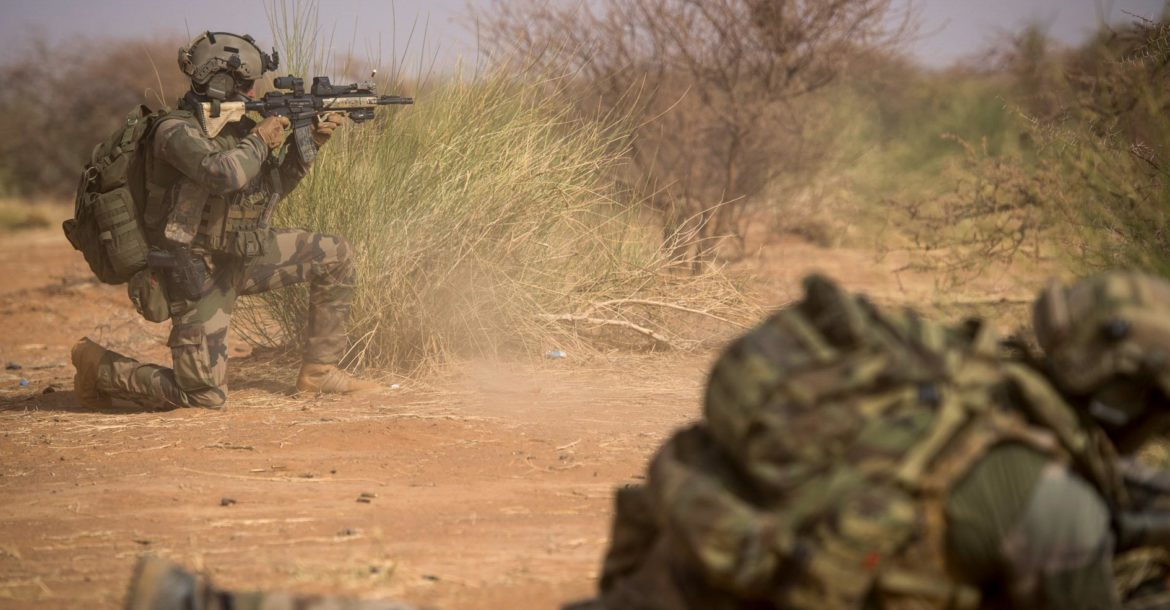
A group of jihadists close to Al-Qaeda has emerged as the West’s most formidable enemy in the Sahel, taking over from the Islamic State as the region’s major threat.
The Group to Support Islam and Muslims, also known by its Arabic acronym JNIM, is a sworn enemy of the Islamic State in the Greater Sahara (ISGS).
It made headlines most recently when it killed five soldiers of the French-led Barkhane force in two attacks within a week.
The killings are the latest example of GSIM’s rise to a position that experts say make it an unavoidable partner in — or the biggest obstacle to — any peace negotiations for the restive Sahel region, the arid expanse south of the Sahara that is roughly the size of Europe.
‘Gained in Influence’
“It has gained in influence and territorial power these past few months,” a high-ranking French officer told AFP on condition of anonymity, adding that GSIM had become both “more combative and better structured.”
This is a far cry from the situation only a year ago, when France and the G5 Sahel force, which groups Mauritania, Mali, Niger, Chad, and Burkina Faso, named ISGS their number one enemy in the region.
But after successful French-led campaigns against the Islamic State offshoot, ISGS activity has been much reduced, making GSIM the new group to beat.
“Today it is the worst enemy for Barkhane, international forces, and Mali,” General Marc Conruyt, the commander of Barkhane, France’s 5,100-member counterterrorism force, told parliament in November.
Created in 2017 via the merger of several jihadist groups under the leadership of veteran Tuareg militant Iyad Ag Ghaly, GSIM has become one of Al-Qaeda’s most active affiliates anywhere.
“Based on what he has accomplished so far, continuing to expand and to exist despite the aggressive counterterrorism operations, he is among the most respected Al-Qaeda leaders currently,” Rida Lyammouri, an associate fellow at the Clingendael Institute in the Netherlands, said of Ag Ghaly.
His accomplishments have even allowed his group to overtake al-Qaeda’s original local representation, Al-Qaeda in the Islamic Maghreb (AQIM), said Djallil Lounnas, a researcher at the Al Akhawayn university in Morocco.
When France claimed the killing of longstanding AQIM boss Abdelmalek Droukdel last June, “this confirmed the definitive rise of GSIM over Al-Qaeda in the region,” he said.
‘Extremely Powerful’
GSIM is “extremely powerful, structured, and well-organized,” Lounnas added, not least because its leaders are now mainly from the Sahel region itself, which has helped in setting up loyal and well-trained cells and intelligence networks.
The Africa Center for Strategic Studies, citing experts, reported that GSIM-affiliated groups “jointly earn between $18 and $35 million annually, mostly through extortion of the transit routes under their control, communities engaged in artisanal mining, and to a lesser extent kidnapping for ransom.”
GSIM’s membership is estimated at 1,000 or more, much more than that of ISGS. And its leadership has shown exceptional resilience, recovering relatively easily from losing its military commander Ba Ag Moussa, who was killed by France in November.
One of GSIM’s biggest coups was a swap of 200 prisoners — including many jihadists — for two Italian hostages, the Malian opposition figure Soumaila Cisse, and Frenchwoman Sophie Petronin, to the dismay of many French soldiers who had taken the jihadists prisoner only to see them walk free a few months later.
The swap was a “master stroke” by Ag Ghaly, Lounnas said.
“The message is that the group now will have the loyalty of these members, in addition to showing other members that even if they get arrested, the group will do everything possible to get them free,” added Lyammouri.
‘Mission Impossible’
In fights with ISGS, the GISM — whose capacity for action appears both solid and lasting — has been coming out on top in recent months, analysts and military experts told AFP.
France, which is hoping to cut its troop size in the region and rely on local and EU partners to take up the slack, has recently told AFP it was no longer opposed to including some jihadist elements in peace talks, except for their top leaders, such as Ag Ghaly.
But if France and its allies are entertaining hopes of taking down GSIM’s leadership and then proceed to sow divisions in the rank-and-file, they should think again, Lyammouri warned.
“It will be almost a mission impossible to try to weaken them among the support base,” he said.
 Eurasia Press & News
Eurasia Press & News



